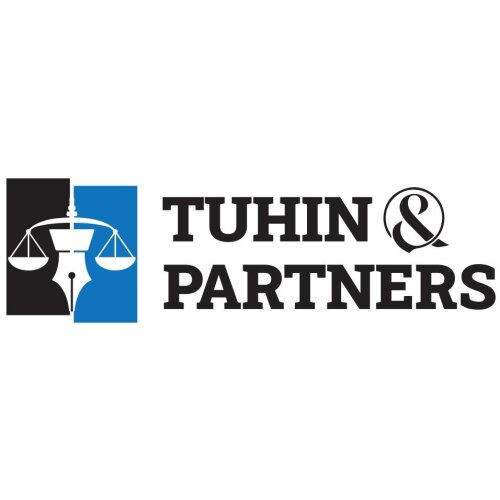Best Antitrust Lawyers in Dhaka
Share your needs with us, get contacted by law firms.
Free. Takes 2 min.
List of the best lawyers in Dhaka, Bangladesh
About Antitrust Law in Dhaka, Bangladesh
Antitrust law in Dhaka, Bangladesh, is designed to promote fair competition and prevent monopolistic practices within the market. In Bangladesh, antitrust regulations are covered under the Competition Act 2012, a legislative framework that aims to deter anti-competitive agreements, abuse of dominant positions, and ensure fair trade practices in the market. The Bangladesh Competition Commission (BCC) is the regulatory body responsible for implementing this law, ensuring that businesses operate fairly and consumers are protected from unfair practices.
Why You May Need a Lawyer
There are several situations where individuals or businesses might require legal assistance in the field of antitrust. Common scenarios include mergers or acquisitions that could potentially reduce market competition, allegations of anti-competitive agreements (such as price-fixing or market sharing), abuse of dominant market position, and consumer protection issues. Legal experts can provide guidance in understanding intricate laws, represent parties in legal disputes, and help navigate through regulatory processes enforced by the BCC.
Local Laws Overview
The Competition Act 2012 is the primary legislative document governing antitrust regulations in Bangladesh. Key aspects include the prohibition of agreements between businesses that restrict competition, preventing abuse of dominant positions by corporations, and overseeing mergers/acquisitions to avert adverse effects on competition. The act empowers the Bangladesh Competition Commission to investigate, impose penalties, and enforce compliance to maintain market integrity. Businesses operating in or entering the market in Dhaka must ensure compliance with these regulations to avoid legal consequences.
Frequently Asked Questions
What is the purpose of antitrust laws in Dhaka?
The purpose of antitrust laws is to promote fair competition, prevent monopolistic practices, and protect consumer interests by ensuring that businesses do not engage in anti-competitive activities.
Who enforces antitrust laws in Bangladesh?
The Bangladesh Competition Commission (BCC) is the regulatory body responsible for enforcing antitrust laws in Bangladesh.
What constitutes an anti-competitive agreement?
An anti-competitive agreement can include practices such as price-fixing, market sharing, limiting production, or collusive bidding between businesses that could harm competition in the market.
What is considered an abuse of dominant position?
Abuse of dominant position occurs when a company uses its market power to eliminate competition, such as through predatory pricing, exclusive dealing, or refusal to supply.
Are there penalties for violating antitrust laws in Bangladesh?
Yes, the BCC can impose penalties, which may include fines, directives to cease anti-competitive practices, or orders for divestment of assets or business operations.
Can consumers file complaints about anti-competitive practices?
Yes, consumers can file complaints with the Bangladesh Competition Commission regarding any suspected anti-competitive behavior affecting their interests.
How does the BCC assess mergers or acquisitions?
The BCC assesses whether a merger or acquisition would significantly reduce competition in the market and weigh any potential benefits against the possible anti-competitive effects.
Is pre-notification required for mergers and acquisitions?
Pre-notification of mergers or acquisitions may be required if the transaction meets certain thresholds that could significantly impact market competition.
What are the procedures for lodging a complaint with the BCC?
Complaints can be lodged in writing to the BCC, detailing the nature of the anti-competitive behavior and any supporting evidence available.
How can businesses ensure compliance with antitrust laws?
Businesses can ensure compliance by conducting regular legal audits, seeking advice from legal experts, and adhering to fair trade practices and BCC guidelines.
Additional Resources
For further information and guidance on antitrust matters, the following resources and organizations can be helpful:
- Bangladesh Competition Commission (BCC): The primary enforcement body for antitrust regulations.
- The Ministry of Commerce, Bangladesh: Provides oversight and support for trade-related matters.
- Legal consultancies and law firms specializing in commercial and competition law.
Next Steps
If you need legal assistance in antitrust matters in Dhaka, Bangladesh, consider the following steps:
- Identify the specific antitrust issue you are facing, whether it involves an investigation, compliance, or potential litigation.
- Consult with a lawyer who specializes in competition law to obtain professional advice tailored to your situation.
- Gather and document all relevant information and evidence related to your case.
- Engage with the Bangladesh Competition Commission if official intervention or clarification on compliance is necessary.
- Stay informed about any updates or changes in antitrust regulations that could affect your business operations.
Lawzana helps you find the best lawyers and law firms in Dhaka through a curated and pre-screened list of qualified legal professionals. Our platform offers rankings and detailed profiles of attorneys and law firms, allowing you to compare based on practice areas, including Antitrust, experience, and client feedback.
Each profile includes a description of the firm's areas of practice, client reviews, team members and partners, year of establishment, spoken languages, office locations, contact information, social media presence, and any published articles or resources. Most firms on our platform speak English and are experienced in both local and international legal matters.
Get a quote from top-rated law firms in Dhaka, Bangladesh — quickly, securely, and without unnecessary hassle.
Disclaimer:
The information provided on this page is for general informational purposes only and does not constitute legal advice. While we strive to ensure the accuracy and relevance of the content, legal information may change over time, and interpretations of the law can vary. You should always consult with a qualified legal professional for advice specific to your situation.
We disclaim all liability for actions taken or not taken based on the content of this page. If you believe any information is incorrect or outdated, please contact us, and we will review and update it where appropriate.










